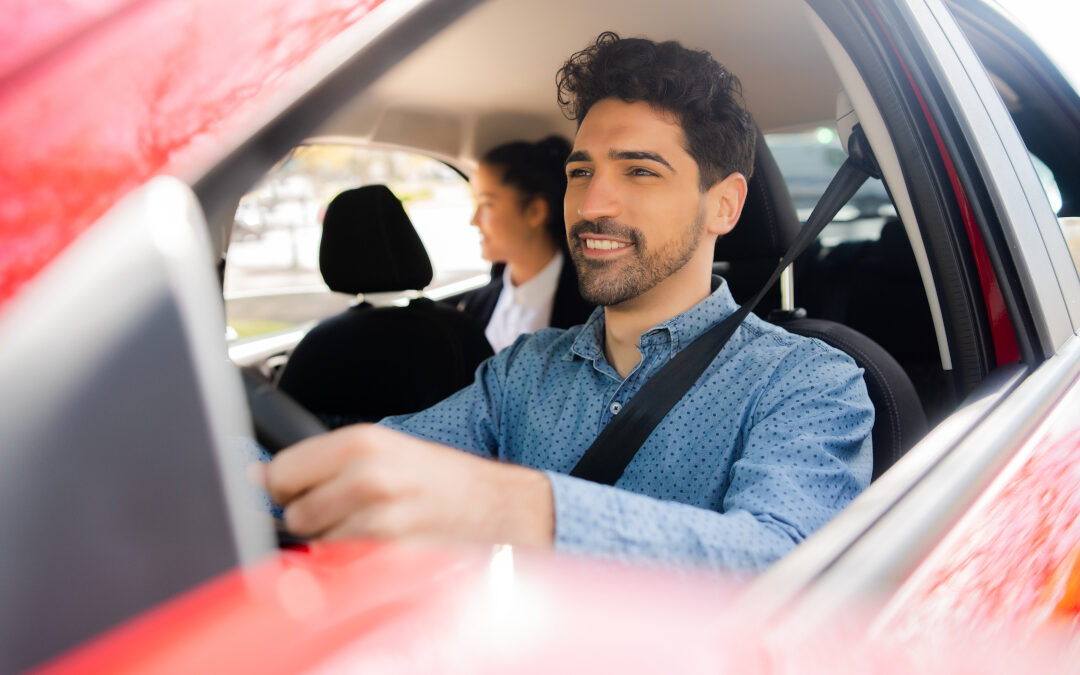Over the past few years, rideshare apps like Uber and Lyft have become increasingly popular in Virginia. For passengers, it’s a convenient way to get around town. For drivers, it’s a part-time job that can serve as their primary income.
No matter how much time you spend driving or riding, it’s important to consider insurance coverage for rideshare vehicles.
While rideshare companies offer projections during certain events, they also require all drivers to carry their own insurance. By understanding the specifics of rideshare insurance, you can make an informed decision about protecting your vehicle.
Rideshare Insurance Requirements
Since every Lyft and Uber driver is required to carry auto insurance, many drivers start with personal auto insurance. This type of policy often does not protect you while you’re signed into the app, as rideshare driving is considered a “commercial” activity.
Drivers are required to tell their insurance provider if they’ve started working for a rideshare company. This does increase your premium, so some drivers choose to not tell their insurance provider. If you decide to follow this path, you could cost yourself more down the line.
If an accident happens while you’re signed into the rideshare app, your insurance may not be able to cover any damages and instead rely on your to pay out of pocket.
Rather than risk this expensive mistake, you can either keep your personal auto insurance policy or switch to a commercial or rideshare policy. Many of the larger insurance companies offer rideshare-specific policies that are less expensive than a commercial vehicle policy.
What Do Rideshare Companies Cover?
Uber, Lyft and other major rideshare companies do have commercial insurance that covers drivers when they are signed into the app. If the app is off or you’re not currently waiting for a ride request, they can’t help cover costs in an accident.
Once you’re waiting for a ride request, on your way to pick up someone, or driving the customer to their destination, then the rideshare company’s coverage kicks in. Even still, this insurance policy is limited to protecting the passengers and people involved in the accident.
Here’s a breakdown of Uber and Lyft’s insurance policies:
Waiting for a Ride Request
This is when you are logged into the app but are not matched with a customer yet.
- Uber
- Third-party liability if your personal auto insurance doesn’t apply
- $50,000 in bodily injury per person
- $100,000 in bodily injury per accident
- $25,000 in property damage per accident
- Lyft
- Third-party liability if your personal auto insurance doesn’t apply
- $50,000/person for bodily injury
- $100,000/accident for bodily injury
- $25,000/accident for property damage
Picking Up Passengers or During a Trip
This applies either when you’ve accepted a request and are on your way to pick them up, or when you’re driving towards the passenger’s destination
- Uber
- Uber maintains the following auto insurance on your behalf in case of a covered accident:
- $1,000,000 third-party liability
- Uninsured/underinsured motorist bodily injury
- Contingent comprehensive and collision
- Up to actual cash value of car ($1,000 deductible)
- Lyft
- Lyft provides the following insurance for covered accidents:
- $1,000,000 for 3rd-party auto liability
- Uninsured/underinsured motorist bodily injury and/or first-party coverage
- Contingent comprehensive & collision up to the actual cash value of the car ($2,500 deductible)
Do You Need Rideshare Insurance?
If you are working for Uber, Lyft or other rideshare companies, then you should get speciality insurance.
For people working with specific delivery companies, like for a taxi service or limousine driver, then their vehicles are usually owned by the company and covered by their commercial insurance.
For rideshare drivers, you should consider getting commercial auto insurance, or if your provider offers it, rideshare coverage. Many insurance companies in Virginia offer policies designed for rideshare drivers which are usually less expensive than commercial policies and offer unique coverage.
These policies help protect your vehicle and offer additional coverage outside the policies from your rideshare company of choice.
Local Auto Insurance in Richmond, VA
Just like when buying any type of insurance, it’s important to do your research before committing to a policy. Make sure to contact potential provides directly to understand exactly what their policies cover and if it fits your situation.
Sanford Insurance has provided Richmond drivers with the auto insurance policies they need for decades. Whether you’re driving your family around town or picking up rideshare passengers, we want to keep you safe.
Contact us to discuss our auto insurance plans.
